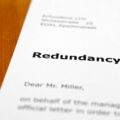Last Updated on 30 August 2024 by Rebecca
Employee Shareholder Status Under An Employee Share Scheme
Employee shareholder status under the employee share scheme has not been without controversy over the years. Launched at the tail end of 2013, the giving up of certain workers’ rights in exchange for employee shareholder status has employee advocacy groups concerned.
But what is employee share ownership and why has it got trade unionists, and employment lawyers so fired up?
-
The Benefits Of Employee Share Ownership
The employee share ownership scheme is a government scheme that has had several critics but essentially it lets employers offer share incentives to employees (a minimum of £2000) in return for the surrender of certain employment rights.
Let us try to understand it more by looking at the benefits of an employee stock ownership program:
- Employee stock ownership improves performance and incentivises increased productivity and entrepreneurialism.
- A focus on improved performance reduces conflict and increases collectivism and entrepreneurship.
- As an employee shareholder, it can lead to improved responsibility and accountability.
- Reduction in employee turnover.
- Potential tax advantages.
-
Rights As A Shareholder Under Employee Share Ownership Plan
There are obvious benefits to adopting the scheme, yet it has also received some criticisms focusing on the mandatory resignation of workers’ legal rights, which are surrendered in return for shares. Examples of rights surrendered in exchange for employee shares include:
- Statutory redundancy pay.
- Right to claim unfair dismissal.
- Right to request flexible work.
- Right to request time off for study/training leave.
However, under share schemes for employees, shareholders can claim unfair dismissal based on the following:
- Discrimination
- Whistleblowing
-
Independent Employee Share Scheme Advice
In an employee share scheme, the shareholder-employee remains entitled to the same health and safety standards as non-shareholder employees, as well as receiving the equivalent entitlement to minimum holiday pay, sick pay, and maternity pay.
For employers considering the scheme it is worth noting that before an individual agrees to be a shareholder-employee, they must first receive advice from an independent advisor on the terms and effects of the employee shareholder agreement. When this takes place, it is the employer who is required to meet reasonable costs for that advice, whether the individual accepts the position or not.
-
Much Needed Clarity On Employee Shareholder Status
Looking at the number of complexities inherent in the scheme, it is advised that employers draw up clear contracts to clarify employee shareholder status. The contract should include details of exactly what rights an employee is giving up and it must provide them with significant information relating to the shares being offered. In addition, contracts should include buy-back clauses that will come into effect if the employee were to resign from the company or be dismissed.
Employee Shareholder Status FAQs
-
What Do We Mean By Employee Shareholder Status?
Employee shareholders are employees who have invested in their place of work through a company share scheme; and are now part owners of the business they are working for. As employee shareholders, they are entitled to the benefits of being a shareholder; such as dividend payments, certain tax advantages and capital growth of share value. However employee shareholder status also means they give up certain employment rights that non-shareholder employees are entitled to.
-
What Are The Pros And Cons Of Offering An Employee Stock Ownership Plan?
For an employer, an employee share plan offers several benefits. With a vested interest in the business employee productivity tends to go up. Accountability and responsibility also go up among those with employee shareholder status. Other benefits for the business include reduced staff turnover and absenteeism. Negatives of introducing an employee share scheme trust are that administration costs can be high, there is a dilution of ownership and in the event of the share price falling it leads to low morale for those with employee shareholder status.
Related Blogs








